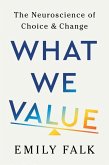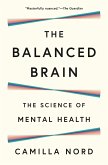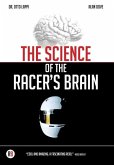"Why do some people become radicalized? How do ideologies shape the human brain? And how can we unchain our minds from toxic dogmas? In [this book], Leor Zmigrod reveals the deep connection between political beliefs and the biology of the brain. Drawing on her own pioneering research, she uncovers the complex interplay between biology and environment that predisposes some individuals to rigid ways of thinking, and explains how ideologies take hold of our brains, fundamentally changing the way we think, act, and interact with others. She shows how ideologues of all types struggle to change their thought patterns when faced with new information, culminating in the radical message that our politics are not superficial but are woven into the fabric of our minds"--
Hinweis: Dieser Artikel kann nur an eine deutsche Lieferadresse ausgeliefert werden.
Hinweis: Dieser Artikel kann nur an eine deutsche Lieferadresse ausgeliefert werden.








